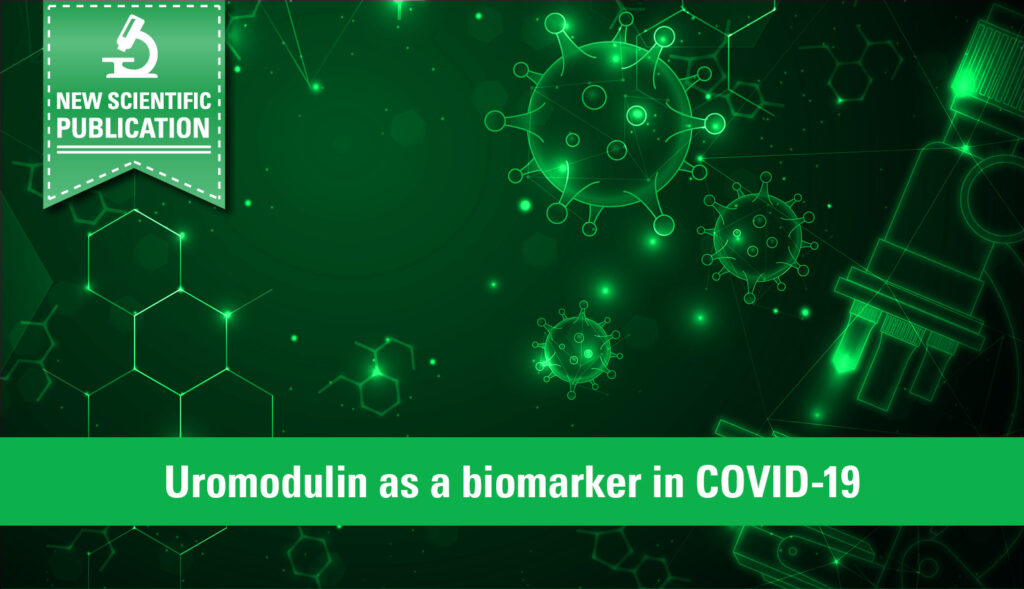Serum uromodulin (sUmod) represents a promising biomarker for acute kidney injury (AKI) in COVID-19 patients, as reported in a published collaborative study between EUROIMMUN, St Georg Hospital (Leipzig, Germany) and further institutes and clinics.
AKI is a frequent complication in patients hospitalized with COVID-19 and is associated with an increased risk of fatal outcomes. Early diagnosis of COVID-19-associated kidney disease is therefore needed. Traditional laboratory markers of kidney function, i.e. creatinine and cystatin C, lack specificity and sensitivity and are influenced by sex, muscle mass, nutrition and other factors. The estimated glomerular filtration rate (eGFR) can also vary depending on the analytical method used. Serum uromodulin (sUmod) may offer a solution to these limitations. Uromodulin is a glycoprotein that is synthesised exclusively in the kidney, and its serum level is closely linked to kidney function. It is a more sensitive marker of kidney function than creatinine and cystatin C, allowing earlier detection of kidney injury.
The association of sUmod with AKI and in-hospital mortality was examined in a cohort of 378 hospitalised COVID-19 patients, including subsets of patients with various comorbidities. The study was performed as part of a collaboration between EUROIMMUN (Luebeck Germany), St Georg Hospital (Leipzig, Germany) and further institutes and clinics. The patients were examined for AKI using standard laboratory parameters and additionally sUmod. The sUmod levels were measured using a sensitive uromodulin ELISA based on monoclonal antibodies, which is CE-marked for serum analysis (EUROIMMUN).
151 of the hospitalized COVID-19 patients experienced AKI, amounting to 40% of the entire cohort. 116 of these patients had AKI already at the time of hospital admission, while 35 developed AKI during their hospital stay. The COVID-19 patients with AKI had significantly lower mean levels of sUmod (125 ng/ml) than those without AKI (215 ng/ml). Moreover, there was a compelling correlation between sUmod and other AKI markers such as serum creatinine and cystatin C. The probability of in-hospital death was higher in patients with AKI, with the mortality rate in this group amounting to 15%. Notably, the patients who died exhibited significantly lower mean levels of sUmod (129 ng/ml) than those who survived hospitalization (188 ng/ml).
This study thus affirms the association between AKI and in-hospital death in COVID-19 patients and reinforces the importance of recognising and managing AKI promptly. The promising biomarker sUmod is a remarkably stable antigen and exhibits various analytical advantages over conventional kidney function markers. Further research is warranted to explore its clinical applications and refine the risk stratification in this patient population.
Read more on the new study in Scientific Reports:
Wendt, R., Macholz, M., Kalbitz, S. et al. Serum uromodulin associates with kidney function and outcome in a cohort of hospitalised COVID-19 patients. Sci Rep 14, 25420 (2024). https://doi.org/10.1038/s41598-024-76372-3
